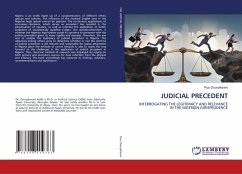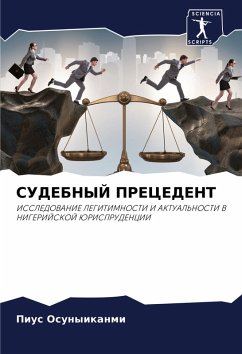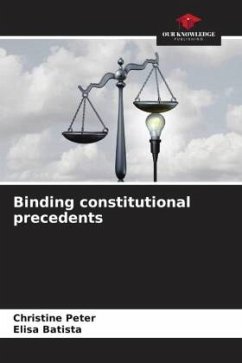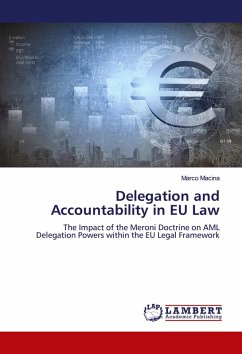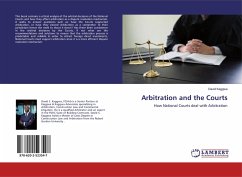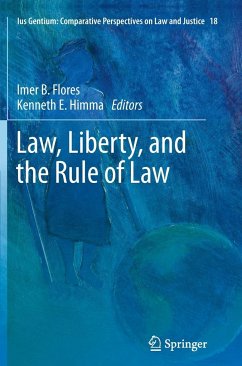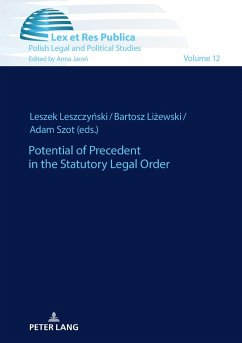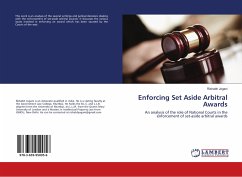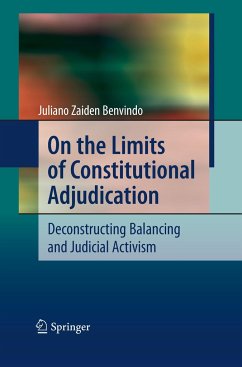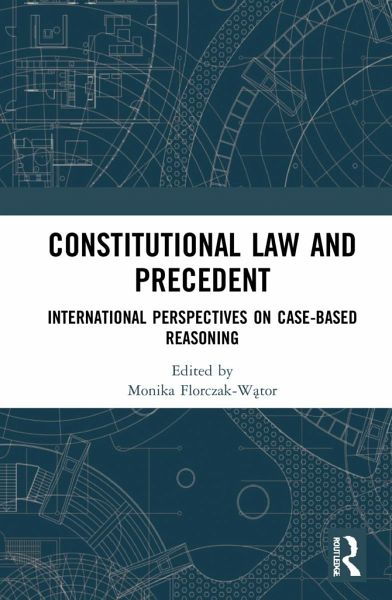
Constitutional Law and Precedent
International Perspectives on Case-Based Reasoning
Herausgegeben: Florczak-Wator, Monika
Versandkostenfrei!
Versandfertig in 6-10 Tagen
137,99 €
inkl. MwSt.
Weitere Ausgaben:

PAYBACK Punkte
69 °P sammeln!
This collection examines case-based reasoning in constitutional adjudication; that is, how courts decide on constitutional cases by referring to their own prior case law and the case law of other national, foreign, and international courts.Argumentation based on judicial authority is now fundamental to the resolution of constitutional disputes. At the same time, it is the most common form of reasoning used by courts. This volume shows not only the strengths and weaknesses of such argumentation, but also its serious methodological shortcomings. The book is comparative in nature, with individual...
This collection examines case-based reasoning in constitutional adjudication; that is, how courts decide on constitutional cases by referring to their own prior case law and the case law of other national, foreign, and international courts.
Argumentation based on judicial authority is now fundamental to the resolution of constitutional disputes. At the same time, it is the most common form of reasoning used by courts. This volume shows not only the strengths and weaknesses of such argumentation, but also its serious methodological shortcomings. The book is comparative in nature, with individual chapters examining similar problems that different courts have resolved in different ways. The research covers three types of courts; namely the civil law constitutional courts of Germany, Italy, Poland, Lithuania, and Hungary; the common law supreme courts of the United States, Canada, and Australia; and the European international courts represented by the European Court of Human Rights and the Court of Justice of the European Union. The authors are distinguished scholars from various countries who specialise in constitutional justice issues.
This book will be of interest to legal theorists and practitioners, and will be especially insightful for constitutional court judges.
The Open Access version of this book, available at www.taylorfrancis.com, has been made available under a Creative Commons Attribution-Non Commercial-No Derivatives 4.0 license.
Argumentation based on judicial authority is now fundamental to the resolution of constitutional disputes. At the same time, it is the most common form of reasoning used by courts. This volume shows not only the strengths and weaknesses of such argumentation, but also its serious methodological shortcomings. The book is comparative in nature, with individual chapters examining similar problems that different courts have resolved in different ways. The research covers three types of courts; namely the civil law constitutional courts of Germany, Italy, Poland, Lithuania, and Hungary; the common law supreme courts of the United States, Canada, and Australia; and the European international courts represented by the European Court of Human Rights and the Court of Justice of the European Union. The authors are distinguished scholars from various countries who specialise in constitutional justice issues.
This book will be of interest to legal theorists and practitioners, and will be especially insightful for constitutional court judges.
The Open Access version of this book, available at www.taylorfrancis.com, has been made available under a Creative Commons Attribution-Non Commercial-No Derivatives 4.0 license.




